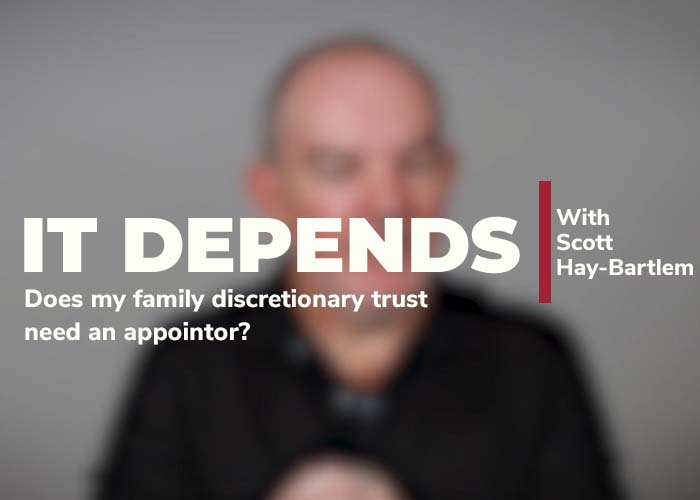Many transport operators have corporate structuring arrangements in place that involve internal labour hire.
The Queensland Government recently introduced the Labour Hire Licensing Bill 2017 into Parliament. If enacted, the Bill will introduce Australia’s first licensing system for the labour hire industry. The scope of the Bill appears wide enough to capture internal labour hire arrangements. Therefore, companies providing labour hire to other companies within the same corporate group will need to be licensed. Significant penalties will be imposed on labour hire providers operating without a licence and on companies entering into arrangements with unlicensed providers.
Background
There are essentially two types of labour hire companies in Australia: external labour hire companies and internal labour hire companies. External labour hire companies provide labour to unrelated entities. Internal labour hire companies are generally companies within a larger corporate group that are incorporated to provide labour to another company within the structure.
The Labour Hire Licensing Bill 2017 (Qld) introduces a licensing system for labour hire service providers in Queensland. The licensing system requires licences to be renewed annually with broad six monthly reporting obligations imposed on licence holders.
Who is caught by the new regime?
The new regime will apply to ‘providers’ of ‘labour hire services’ and to entities entering into arrangements with those providers. The Bill defines ‘provider’ and ‘labour hire services’ very broadly as follows:
A person (a provider) provides labour hire services if, in the course of carrying on a business, the person supplies, to another person, a worker to do work.
The Bill states that a provider provides labour hire services regardless of:
- whether or not the worker is an employee of the provider;
- whether or not a contract is entered into between the worker and the provider, or between the provider and the person to whom the worker is supplied;
- whether the worker is supplied by the provider to another person directly or indirectly through one or more agents or intermediaries; and
- whether the work done by the worker is under the control of the provider, the person to whom the worker is supplied or another person.
Licensing obligations
If the Bill is passed, labour hire service providers will be required to obtain a licence in order to provide labour hire services. In order to be granted a licence, the labour hire service provider must be assessed as a ‘fit and proper’ person and as financially viable. If the labour hire service provider is a company, its executive officers must also be assessed as ‘fit and proper’ persons.
In determining whether an applicant for a licence is a ‘fit and proper’ person, the Chief Executive of the public service unit administering the Act must have regard to, among other things:
- the person’s character, including, for example, the person’s honesty, integrity and professionalism;
- whether a corporation has been placed into administration, receivership or liquidation while the person was an executive officer of the corporation;
- whether the person has been disqualified from managing corporations under the Corporations Act;
- whether the person has been convicted of an offence against a ‘relevant law’ or another law that affects the person’s suitability to provide labour hire services; and
- whether the person has a history of compliance with ‘relevant laws’ or is able to demonstrate an ability to comply with ‘relevant laws’.
‘Relevant laws’ is defined broadly and includes any state or federal legislation that imposes an obligation on a person in relation to workers, including obligations to keep records about workers, payroll tax or superannuation for workers and ensure the health and safety of workers.
Licences will be granted for a term of up to one year and may be renewed annually upon payment of a renewal fee before the licence expires. Licences may also be granted subject to conditions such as requiring the licensee to hold particular insurance cover.
Reporting obligations
Under the proposed new regime, a licensee must give the Chief Executive a report within 28 days after the reporting period ends. Reporting periods are every 6 months starting on the day the licence is granted. These reports must include the following information:
- the number of workers supplied by the licensee to another person, who have carried out work for that other person during the reporting period;
- a description of the arrangements entered into between the licensee and the relevant workers;
- details of the type of work carried out, including the industry in which the work was carried out;
- the locations in Queensland where the work was carried out;
- any accommodation provided to workers in connection with the provision of labour hire services;
- disclosure of any disciplinary action or enforcement action taken against the licensee by a regulatory body under a relevant law during the reporting period; and
- the number of notifiable incidents and applications for compensation a relevant worker was involved in.
Other obligations
Other obligations on the licensee include:
- producing a copy of their licence for inspection when asked by an inspector, worker or other person with whom they are dealing;
- not transferring, selling, disposing of, lending or hiring out their licence to another person; and
- giving the Chief Executive notice of a prescribed change in circumstances within 14 days after the change.
Monitoring and enforcement
The Bill provides for the appointment of inspectors to monitor compliance with the new regime and take action to deal with alleged contraventions of the legislation. Inspectors will have broad powers to enter a licensee’s workplace to ensure compliance and, upon entry, to:
- search any part of the place;
- inspect, examine or film any part of the place or anything at the place;
- take for examination a thing, or a sample of a thing, at the place;
- place an identifying mark in or on anything at the place;
- take an extract from, or copy, a document at the place, or take the document to another place to copy;
- produce an image or writing at the place from an electronic document or, to the extent it is not practicable, take a thing containing an electronic document to another place to produce an image or writing;
- take to, into or onto the place and use any person, equipment and materials the inspector reasonably requires for exercising their powers; and
- remain at the place for the time necessary to achieve the purpose of the entry.
Penalties for prohibited conduct
The Act, if passed, will prohibit the following conduct:
- providing labour hire services without a licence;
- entering into arrangements with unlicensed providers, without reasonable excuse; or
- entering into an arrangement where the person knows, or ought to reasonably know, the arrangement is defined to avoid an obligation under the regime.
The maximum penalty for each offence will be $378,450 for companies and $126,044 or three years’ imprisonment for individuals.
Suspension and cancellation
The Chief Executive may suspend or cancel a licence. The Chief Executive may suspend a licence for a period of 90 days by giving the licensee an ‘information notice’. If the Chief Executive is proposing to cancel a licence, they must give the licensee a show cause notice to allow the licensee 14 days to give a written response to the proposed cancellation. The Chief Executive must consider this response, if any, before deciding whether to cancel the licence.
The holder of a licence that has been cancelled cannot apply for a licence for two years after the cancellation. A corporation that was the holder of a licence that has been cancelled (or any of its related bodies corporate) cannot apply for a further licence unless the Chief Executive is satisfied that, because of a genuine sale, the shareholding and control of the corporation has completely changed.
Where to from here?
The current draft of the Bill has been referred to the Finance and Administration Committee of the Parliament, which will produce a report by 24 July 2017. It is possible that the scope of the Bill will be clarified through this process and that internal labour hire arrangements will be excluded from coverage. As the Minister noted in the Explanatory Speech to the Bill:
The Bill also makes provision for regulations to be made to provide further clarification on the scope of the Bill to ensure that coverage does not capture unintended classes of providers or workers. We are confident that the definition does what it needs to do to cover labour hire, but we acknowledge that there are a multitude of arrangements out in the labour market and we fully expect that we will get further submissions on these matters through the committee process.
Should the Bill pass in its current form, transport operators utilising internal labour hire arrangements will be significantly affected. Those operators will need to ensure the company providing the labour hire:
- is licensed;
- complies with its reporting obligations and other obligations under the new regime; and
- complies with all ‘relevant laws’ that impose obligations in relation to workers.
Should you wish to discuss any aspect of the proposed new legislation, please contact Annie Smeaton (07 3231 2946) or Gillian Bristow (07 3231 2925).




